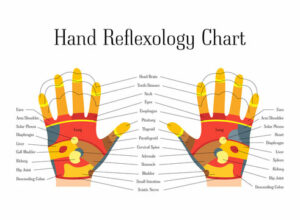The importance of maintaining good dental and oral hygiene for your overall health is frequently overlooked. According to the World Health Organization, “Oral disorders are projected to impact approximately 3.5 billion people” and have been related to major ailments including cancer, heart disease, and diabetes.
Poor oral health is also associated with these conditions. Even if that number is concerning, the good news is that most oral disorders may be avoided. Consume This, Not That! Speaking with many dental professionals, Health learned the worst oral health behaviors to quit right now.
Worst Things For Your Oral Health
1. Grinding Your Teeth
According to Sutton Place Dental Associates’ owner and founder, Joseph Salim, DMD, general and cosmetic dentistry, “When you grind your teeth, you are placing continual pressure to them. The surrounding structures, such as the gums and bones that surround your teeth, will then experience this pressure.
Your gums will then start to recede, and your bones may start to resorb as a result. Furthermore, grinding your teeth can damage the enamel protecting the chewing surfaces of your back teeth, leaving them more sensitive to cold and heat. Another negative effect of grinding is the stress it places on your TMJ, which can lead to headaches, stiffness in the jaw, and other symptoms like jaw discomfort.
Although most people clench and grind their teeth while they sleep, an increasingly stressful workplace has led to an increase in people doing this even during the day. While it may be true that bruxism might lessen or perhaps go away as people age, the harm it does is undeniable. Teeth that are worn down in some manner have been overloaded.
There are instances where only a few teeth are worn down as a result of a certain malocclusion. Some teeth may only be impacted by this, but not others. However, this is the exception rather than the rule, and bruxism is mostly to blame for worn-down teeth.
2. Nail Biting
Nail-biting harms your teeth and jaw, Dr. Salim cautions. Constantly chewing your nails might harm your teeth by wearing down the enamel on your incisors.
It can lead to:
- Malocclusions or poor dental occlusions; teeth may shift out of position because of the continuous pressure exerted on the jaw bone. Nail-biting may even lead to the jaw’s displacement.
- Gingival trauma and gums’ infections due to germs found under fingernails.
- Damage to the front teeth’s enamel, chipping, fracturing, or even extensive wearing out of the teeth’ crowns to the extent that the pulp is exposed..
- Rupture of the vascular-nervous bundle at the apex level through continuous trauma (in the most severe cases). This can lead to the relative loss of tooth vitality, pulpal necrosis, and subsequent pathological consequences. These Include loss of the tooth’s natural color, granuloma, and the possible formation of root cysts.”
3. Eating Hard Foods and Citrus
According to Hackensack University Medical Center’s Dr. James A. Ruggiero, “eating and chewing “hard” meals that might damage dental work (fillings). In addition, Excess citrus fruits and juices- acidity increases teeth erosion and wear.”
4. Bread
According to Dr. Savita Choudhry, DDS “We all require bread in some capacity. However, saliva in the mouth allows the carbohydrates in the bread to break down into sugar as you chew it. The bread has a tendency to adhere to the spaces between the teeth since it transforms into a sticky paste in the mouth.
Cavities may result from this. To satisfy your appetite for carbohydrates, choose for less-refined alternatives like whole wheat bread that has fewer added sugars that are difficult to break down.”
5. Potato Chips
Says Dr. Choudhry “For the majority of us, crunchy potato chips may be quite gratifying. But a lot of the starch in these chips breaks down into sugar. The transformed sugar becomes stuck between and on the teeth, feeding the plaque-forming bacteria.
We seldom eat just one of these chips, and a few produces enough acid to last for a while. After consuming some of these chips, floss your mouth to get rid of all the food debris that has lodged there.”
6. Alcohol
explains Dr. Choudhry, “Most people are aware that drinking alcohol is not very healthy. But did you also know that drinking alcohol causes your mouth to become dry, and a dry mouth lacks saliva, which is necessary for good health.
Saliva helps wipe away food scraps and keep food from adhering to the teeth. Additionally, it aids in treating early signs of tooth decay, gum disease, and other oral diseases. You may keep your mouth moisturized by consuming lots of pure water. Fluoride rinses and other oral hydration options are also beneficial.”
7. Carbonated Drinks
Many individuals are aware that even when the label reads “diet,” pop or soda does very little or nothing beneficial for our health. An earlier study found that drinking huge amounts of carbonated soda can harm your teeth in a way that crack cocaine or methamphetamine cannot.
When you drink carbonated beverages on a regular basis, the plaque creates more acid to destroy your tooth enamel. Additionally, it leaves an inacid coating on the teeth, drying out your mouth and decreasing saliva. Tooth decay can be hastened by dry mouth.
8. Not Visiting the Dentist
Problematic is not going to the dentist frequently. Many folks don’t visit the dentist frequently. As you aren’t getting evaluated frequently to determine whether your mouth has any underlying issues, this can be a serious issue.
Once or twice a year, schedule a cleaning and checkup with the dentist. This is essential to maintaining both the health of your teeth and the health of your mouth.
9. Not Flossing
For the sake of your dental health, flossing is essential. It is essential to maintaining the health of your oral system as well as keeping your teeth and gums free of food particles and other debris. After consuming food that gets trapped in your teeth, such as popcorn, flossing should be done at least twice a day and more frequently if necessary.
10. Stress
Although everyone’s reactions to stress are different, many of us clench our jaws or even grind our teeth when we are faced with a stressful circumstance. When combined with other oral health issues like receding gums from gum disease or teeth grinding as you sleep, these behaviors can wear down our teeth over time and make them more sensitive than normal.
You should be able to prevent stress-related tooth wear if you concentrate on breathing steadily and relaxing your jaw and teeth while you’re under stress. Although everyone’s reactions to stress are different, many of us clench our jaws or even grind our teeth when we are faced with a stressful circumstance.

